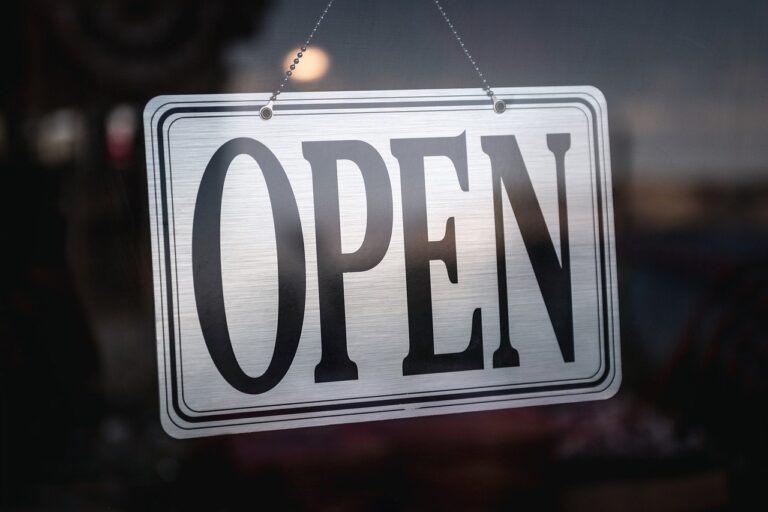Know Your Legal Rights is a bi-monthly column distributed by the State Bar of Wisconsin. It is written by members of the State Bar of Wisconsin’s Lawyer Referral and Information Service (LRIS), which connects Wisconsin residents with lawyers throughout the state. To find an attorney in your area, visit wislaw.org.
By Michelle Wenninger

Independence Day is an iconic American holiday and since its first observance in 1777, fireworks have been an integral part of its celebration. However, as much as they inspire and delight us, these beloved bombs bursting in air are also capable of causing property damage, severe injuries, or even death if not handled properly.
In fact, the most recent data from the Wisconsin Department of Health Services shows that 505 people visited Emergency Departments with fireworks-related injuries between 2019 and 2022. Notably, approximately one quarter to one third of those injured were children. In 2021, 11,500 injuries were treated nationally (compared to 9,100 in 2018 and 15,600 in 2020) according to the United States Consumer Product Safety Commission.
It should come as no surprise then that the use and sale of fireworks in Wisconsin is regulated, and failure to follow these regulations can invite hefty penalties—some criminal.
Local Government Ordinances
Under state law, a fireworks permit is required to legally possess and use fireworks. However, a permit from one location does not guarantee legal use throughout the state. Local governments can impose even stricter regulations as well. For example, the City of Milwaukee prohibits fireworks altogether. Conversely, special considerations may apply to tribal lands that have their own fireworks ordinances, with state regulations unlikely to be enforced outside of exceptional circumstances.
Possession for the sole purpose of transportation to a location where use is authorized is also permissible, provided the individual does not remain in the location where use is unauthorized for more than 72 hours.
State law allows the issuance of fines up to $1,000 for possession or use without or contrary to a permit. The fine can also apply to parents who allow their minor children to use fireworks. A municipality may also obtain an injunction from a circuit court to prevent an individual from violating state or local regulations regarding fireworks. If a person then violates that court order, they can be fined up to $10,000, imprisoned for nine months, or both.
Fireworks Sales and Permits
Fireworks can only be sold to individuals who have a valid fireworks user permit issued by a city, village, or town. The permit must specifically identify the date that fireworks may be purchased, the kind and quantity that may be purchased, and the date and location of use.
Wisconsin vendors may sell fireworks to non-residents without a valid permit, provided that the fireworks are shipped out of state. As with illegal possession and usage, illegal sales are subject to a $1,000 fine as well.
What are Legal and Illegal Fireworks?
The law requires a permit to possess or use fireworks. So what is a firework? In general, fireworks are things that explode, emit sparks, are combustible, or fly through the air. Bottle rockets, roman candles, firecrackers, cherry bombs, spinners, and sky fliers are among some of the items that fall into this category and are therefore prohibited by state law if you do not have a permit.
Some other July Fourth favorites are not considered “fireworks” under state law. Examples include sparklers not exceeding 36 inches in length, smoke bombs, confetti sprayers, novelty devices that spin or move on the ground, and “caps” or “snaps” with minimal amounts of explosive mixture. However, it is important to note again that such items may still be prohibited in certain municipalities with stricter regulations, so it is important to be aware of the regulations in the locality you intend to ultimately possess or use the items.
Professional Fireworks Displays
Lawsuits and insurance claims can arise from error at even public professional displays, and the damage can be quite significant. In 1998, a jury awarded the plaintiff $2.8 million after a firework launch tipped over and discharged an errant shell at a show in the Village of Oconomowoc Lake.
Firework Accidents at Home
It’s not just the professionals that are subject to liability for damage caused by fireworks mishaps. Personal use of fireworks can cause the same types of injuries as those caused by public displays, and it’s prudent to be aware of your potential liability.
First, consider your insurance. Not all homeowner’s or vehicle insurance policies will cover losses resulting from fireworks usage, especially if the usage occurred without a proper permit.
For many, summer in Wisconsin not only means fireworks season, but it also means trips “up north” or to visit our multitude of state parks. It’s nothing new to say that setting off fireworks in a forest can cause—you guessed it—a forest fire, but one should also be aware that the individual responsible for setting off those fireworks can expect to be responsible for the costs of putting out any fires started—not to mention the potential liability for any private property damaged by that fire.
Again, location is important. Federal law governs the Chequamegon-Nicolet National Forest (1.5 million acres spanning 11 Wisconsin counties). Fireworks are entirely prohibited within, and violators can incur fines up to $5,000 or jail time.
So, before heading out to stock up on fireworks for this Fourth of July, consider how to avoid the legal pitfalls mentioned above. Fireworks are great fun, but compliance with the statutes and local ordinances can help you avoid incurring civil or criminal penalties, and having a plan for responsible use can prevent unnecessary property damage or bodily injuries to one’s family and neighbors. Stay safe and have fun.
Michelle Wenninger of Wenninger Law LLC in West Bend specializes in general litigation and criminal/traffic defense. She is a member of the State Bar of Wisconsin Lawyer Referral and Information Service, which connects Wisconsin residents with lawyers throughout the state. Learn more at wislaw.org.



